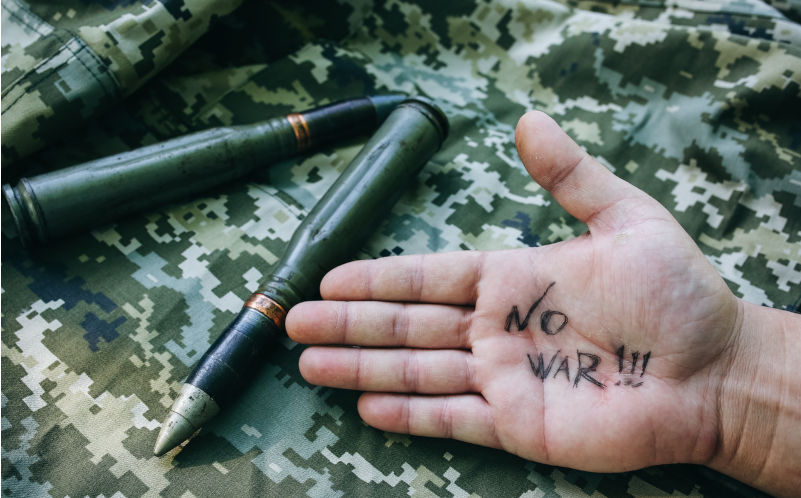Sustaining hope when war is normalised
May 5, 2025
What follows is a link to my talk given on 24 April at the Canberra gathering of the Medical Association for the Prevention of War.
It was the eve of Anzac Day. We were just a short distance away from the Australian War Memorial, now bastardised by the acceptance of funds from weapons manufacturers (as revealed on a recent episode of Four Corners on ABC TV). The gathering had an urgency and weight few of us have felt in our lifetimes.
Membership in MAPW is open to all who care about “preventing” war – and ceasing to normalise both “war” and grotesque levels of spending on “defence”: arguably, war readiness and even warmongering. In the talk, I discuss those “spendings”. And they remain shocking if not surprising. What I am even more concerned with, though, is the degree to which we are persuaded by all political leaders and certainly all mainstream media that war is inevitable, that war is “normal”, that preparing for war is a way to secure peace.
At the same time, each one of us could ask how much public money is spent on understanding what “peacemaking” might mean: what it depends upon, how it shifts the way we see ourselves as well as others, the role it plays in environmental protections, and — crucially — the relationship between what we call “health” and war, with a myriad appalling effects cascading from war, down the generations.
At the recent eulogy for Pope Francis, Cardinal Battista Re said, “Every war makes the world worse.” Francis, himself, was one of the great peacemakers of our time, not via rhetoric only but through example. As the sole world leader and certainly the only “religious” leader with the common sense and courage to defy the normalisation and enabling of war, the loss of his voice is immensely significant.
As you listen to the talk, my hope is that it will support you however you use your “voice”. The quality of this audio recording is not perfect. It was recorded on a phone, and doesn’t come in right at the beginning, but even a phone these days does wonders and the central messages are all there.
I begin the (unedited) talk with thanks, also with a heartfelt awareness that the moral pulse of the world truly is on life support. The engagement and involvement of so-called ordinary people has equally never been as urgent or necessary. My talk includes a number of ways by which we can move from outrage, fear, even despair, to action – especially when we add our own personal efforts to those of others.
I quote the heroic Malala Yousafzai saying: “There’s a moment where you have to choose whether to be a bystander or a change agent.”
As bystanders, we stand alone.
As change agents, we stand together.
Only then, a change of consciousness and a redefining of hope through the redefining of what normal people should call “normal” …. becomes possible.
MAPW “works for health by working for peace”. None of us is exempt from making our world “healthier” through whatever roles we play in our public and most intimate spheres.
There is nothing remotely “healthy” about warmongering, “othering” vulnerable human beings including children, supporting the obscene wealth of weapons manufacturers. Nor in arguing for and defending increases in “defence” spending without any public discussion about securing greater peace through equally greater explicit commitment to co-operation, mutual cultural understanding, and consistent environmental and economic sustainability. Plus securing that universal wish: a passionate desire that today’s children will have their chance to live in a world that celebrates and protects life – and the peace we all need to flourish.
Knowing that we can do something is the most powerful antidote to horror and despair
We will play different parts. That’s as it should be. What’s inspiring and empowering is to know that our part counts. We have choices. We have power to create change. Inspired and acting collectively, our individual “health” benefits; the health of our world, the safety of the world’s children, massively benefits. It’s up to us.
(The opening words of the talk were lost in the recording. They are: “We meet today on Ngunnawal country. The Ngunnawal people are the traditional custodians of this region, and I wish to state my gratitude for the tens of thousands of years they cared for this land, acknowledging their elders past and present, as well as any First Nations people present here this evening… or listening to the talk at a later time.”)

